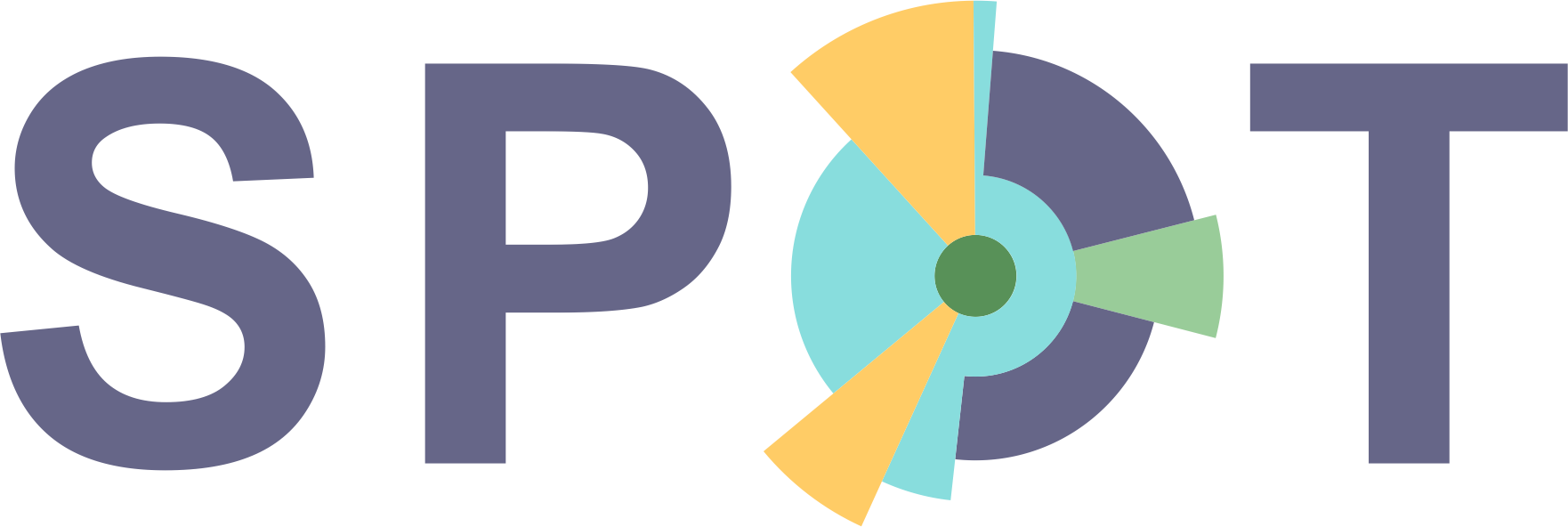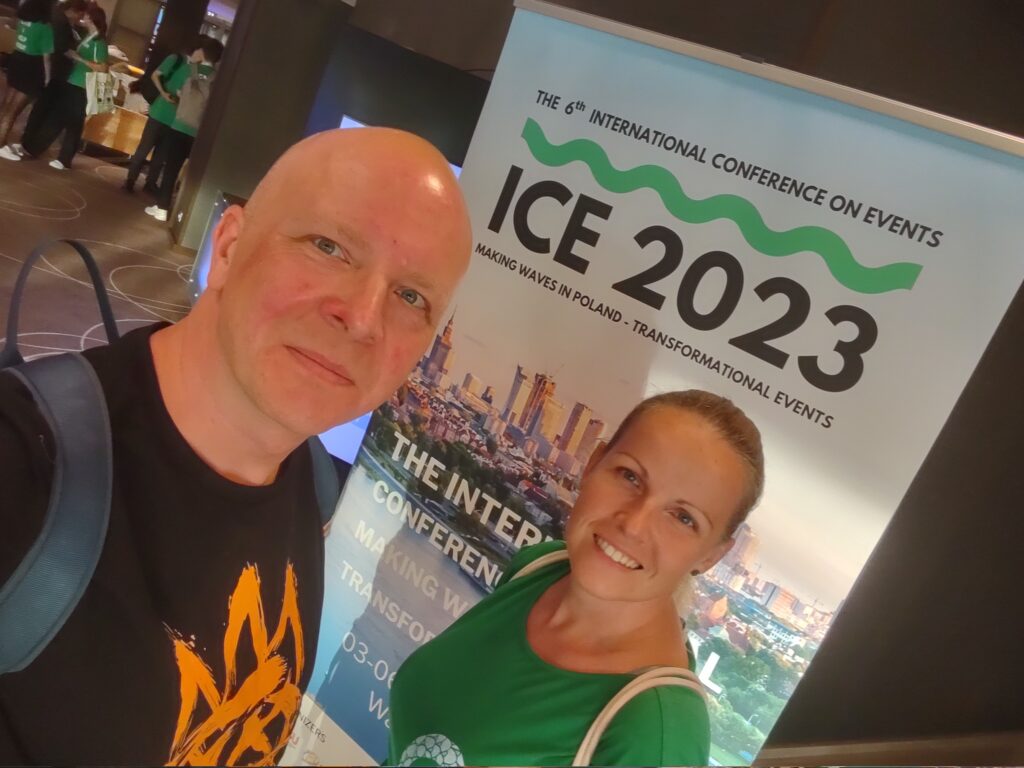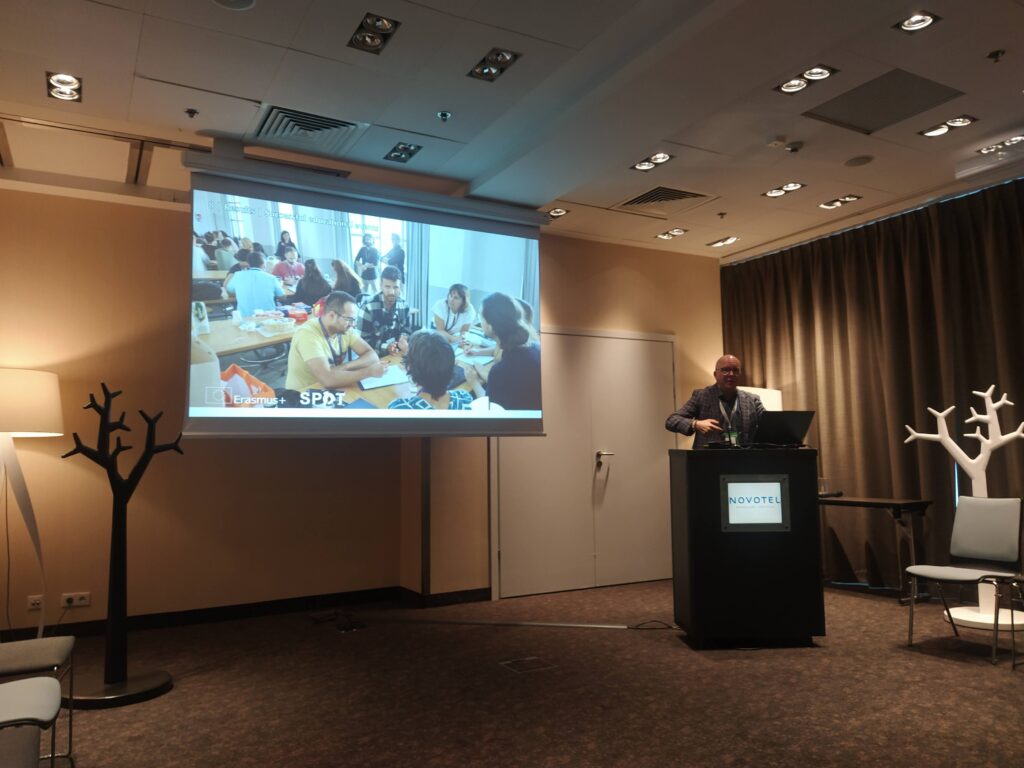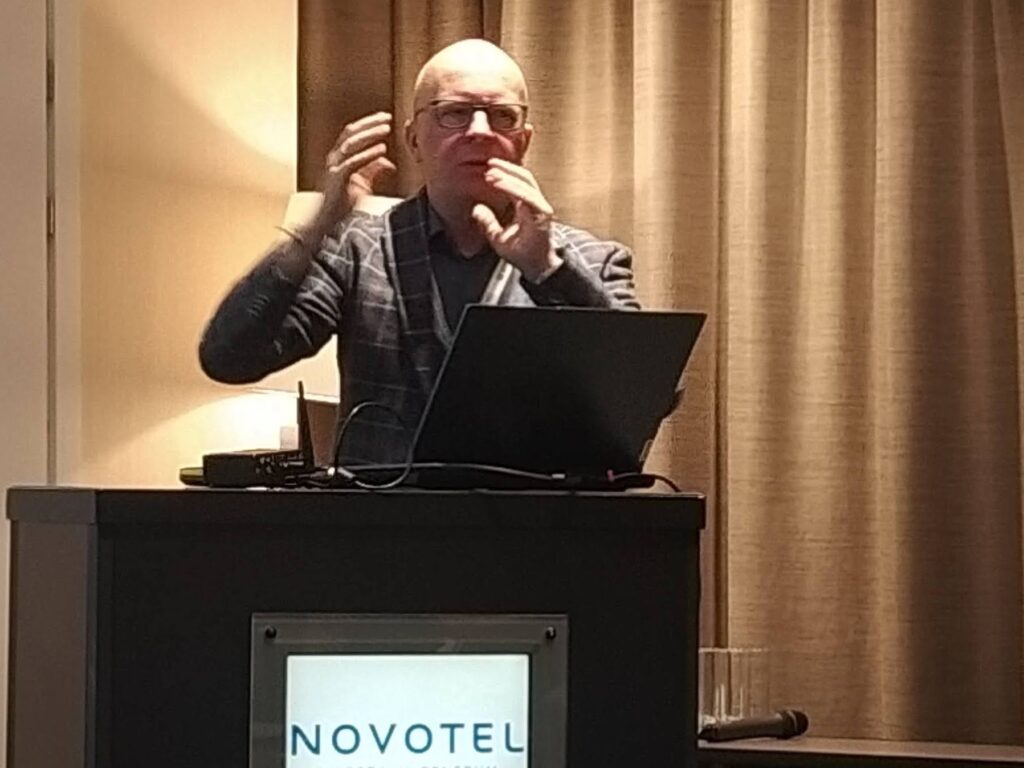Katarzyna Leśniewska-Napierała and Tomasz Napierała (both from University of Lodz) had an opportunity to present findings from the project SPOT during 6th International Conference on Events ICE2023 “Making waves in Poland | Transformational events”. The goal of the SPOT presentation was to evaluate how educational events might stimulate development of sustainable tourism. Understanding of local communities (their cultures, traditions, heritage, and environment, but also recent issues), is substantial when prioritising sustainable development goals. Thus, education becomes a focal point of future tourism.
Educational tourism beyond sustainable tourism priorities
| Type of tourism | Educating locals about… | Educating visitors about… | Priorities |
|---|---|---|---|
| Mass tourism | Quality of hosting tourists | Main tourist attractions | Profit of tourism industry |
| Sustainable tourism | Rediscovery own identity | Local natural and cultural heritage | Joint understanding; Protection of local heritage |
| Educational tourism | Engagement of tourists into local actions | Contribution to local development | Joint contribution to development of local culture, society, nature and economy |
Educational tourism might contribute to development of destinations even more than sustainable tourism in a common sense. Learning places by educational events enables not only understanding localities by visitors, linking cultures of hosts and guests, but also contributing to local development, including cultural, social, environmental and economic contexts. However, organisation of the educational events targeting local context successfully requires a lot of efforts of organisers, locals and visitors.
The case of educational events within the SPOT project’s framework
The case used in this research were three events: study visits organised within the framework of the SPOT project and granted by Erasmus+ Programme. The study visits were organised in three different locations and dates: 1) Mersin (Turkey) – December 6-10, 2021, 2) Peniche (Portugal) – May 9-13, 2022, and 3) Turin (Italy) – September 19-23, 2022. The goal of each study visit was to work with students and cooperate with local actors towards solving spatial planning issues of selected local tourism destinations. Students representing five different universities participated in the study visits: University of Lodz (Poland, leader of the SPOT project), Inland Norway University of Applied Sciences (Norway), Mersin University (Turkey), Politécnico de Leiria (Portugal), and Politecnico di Torino (Italy). Scientific support was offered by the researchers from Institute of Geography and Spatial Organisation of Polish Academy of Sciences (Poland). The method applied to address research questions and evaluate study visits were focus group interviews conducted by the researchers with all students who participated in study visits.
Some students said during group interviews:
Meeting with locals was impressive. (…) we had a lot of information from them. The meeting was the best part of the trip. It was very useful for our further studies. However, the program was intense, so the meeting duration was limited.
Other group emphasized:
Meeting with local actors was one of favourite parts of a study visit. We found it very useful and learned a lot about stakeholders from it. Although the mayor hardly expressed his opinion.
Successful educational events
Successful educational events contributing to sustainable development of tourism destinations must directly relate to the issues of tourism development. Participants of those events are eager to learn about the places visited, to meet with locals (we might call it ‘responsible consumption of visited places’) and are ready to propose and discuss solutions for any issues diagnosed in visited places (this should be recognised as a real involvement and contribution of visitors). To achieve the goal of joint contribution of locals and tourists to local development, participants of those educational events must be prepared in advance. Thus, it is easier to approach demanded goals when including those events into educational programmes. But, during investigated educational events, the focus on local context is a must for participants. This confirms the efficiency of place-based learning, or geographically embedded problem-based or project-based learning. This means that #GeographyMatters.



